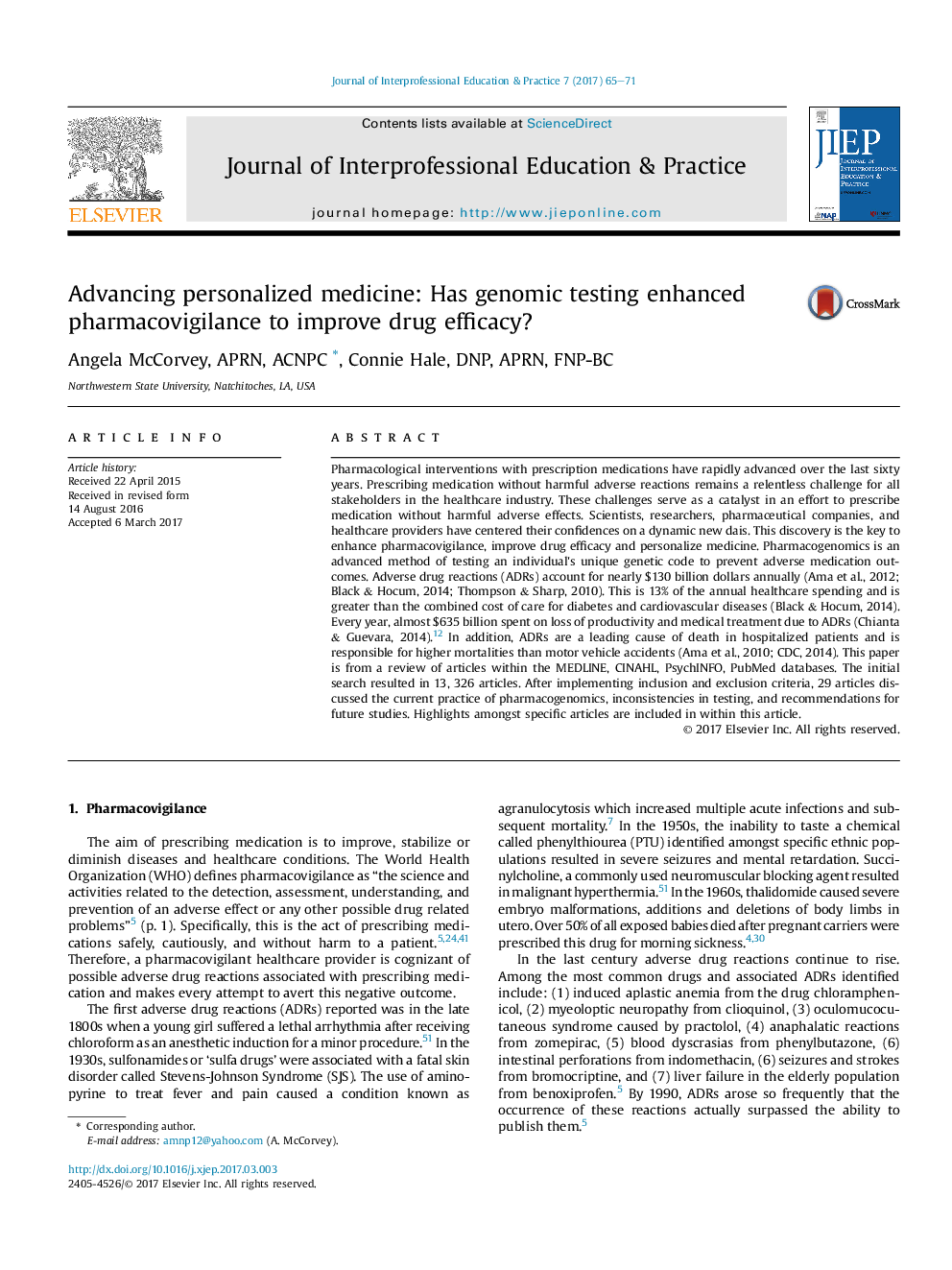| Article ID | Journal | Published Year | Pages | File Type |
|---|---|---|---|---|
| 5569430 | Journal of Interprofessional Education & Practice | 2017 | 7 Pages |
Abstract
Pharmacological interventions with prescription medications have rapidly advanced over the last sixty years. Prescribing medication without harmful adverse reactions remains a relentless challenge for all stakeholders in the healthcare industry. These challenges serve as a catalyst in an effort to prescribe medication without harmful adverse effects. Scientists, researchers, pharmaceutical companies, and healthcare providers have centered their confidences on a dynamic new dais. This discovery is the key to enhance pharmacovigilance, improve drug efficacy and personalize medicine. Pharmacogenomics is an advanced method of testing an individual's unique genetic code to prevent adverse medication outcomes. Adverse drug reactions (ADRs) account for nearly $130 billion dollars annually (Ama et al., 2012; Black & Hocum, 2014; Thompson & Sharp, 2010). This is 13% of the annual healthcare spending and is greater than the combined cost of care for diabetes and cardiovascular diseases (Black & Hocum, 2014). Every year, almost $635 billion spent on loss of productivity and medical treatment due to ADRs (Chianta & Guevara, 2014).12 In addition, ADRs are a leading cause of death in hospitalized patients and is responsible for higher mortalities than motor vehicle accidents (Ama et al., 2010; CDC, 2014). This paper is from a review of articles within the MEDLINE, CINAHL, PsychINFO, PubMed databases. The initial search resulted in 13, 326 articles. After implementing inclusion and exclusion criteria, 29 articles discussed the current practice of pharmacogenomics, inconsistencies in testing, and recommendations for future studies. amongst specific articles are included in within this article.
Related Topics
Health Sciences
Medicine and Dentistry
Public Health and Health Policy
Authors
Angela APRN, ACNPC, Connie DNP, APRN, FNP-BC,
